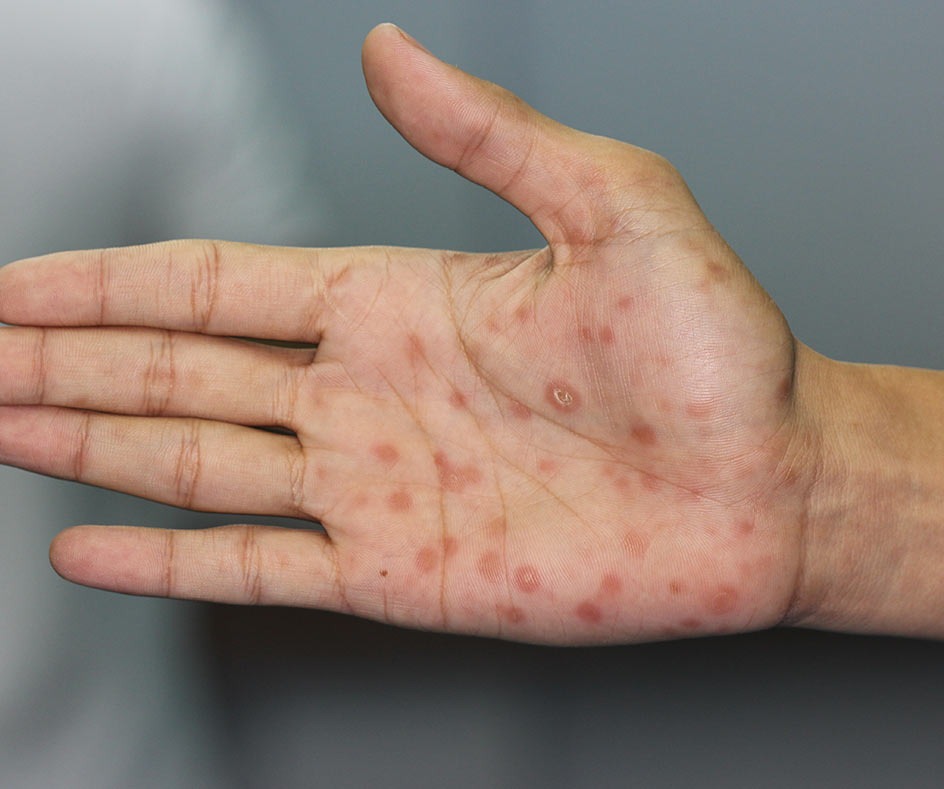Located at 20 Old Brompton Road – Just Steps from ![]() South Kensington Tube. Easy Access, Always.
South Kensington Tube. Easy Access, Always.
Syphilis is a less common STI in the London, UK, but the number of new syphilis cases has gradually increased in the last decade. Four stages of syphilis affect people – the latent, primary, secondary and tertiary.
Syphilis is a well-known sexually transmitted infection (STI). This STI is usually harmless when diagnosed and treated early, but it can be very detrimental to health if left untreated, leading to blindness, paralysis and stroke.
In the latent stage, the infection is present but shows no symptoms. The other stages show different sets of symptoms. However, syphilis infection may be present in all stages and show mild or no symptoms.

This is the first stage of syphilis infection, and symptoms often develop 2 – 3 weeks after the infection. Its main symptom includes a chancre, a small, painless ulcer or a sore that may not be painful.
The chancre usually occurs on the anal areas, vagina and penis but may also develop around or on the buttocks, mouth or fingers. It may be one sore or more. Infected people also experience swollen lymph glands in the groin, underarms or neck.
The primary stage of syphilis can last for about eight weeks. When left untreated, it advances to the secondary stage.

Common symptoms of secondary-stage syphilis include:

This stage of syphilis often takes several years to develop. The symptoms are systemic and life-threatening. They include:
The treatment for syphilis is simple. It involves a short course of antibiotics, or an antibiotic injection from your doctor, but you will need to get tested to receive a prescription.
The prescribed antibiotics will depend on the duration of the infection. Treatment for syphilis is usually the same for pregnant women.
If the infection has been present for two years or less, the doctor may prescribe a penicillin injection administered into the buttocks, but if you have an allergic reaction to penicillin, the doctor will prescribe a 10 – 14 day course of tablets.
If the infection has been present for over two years, you will get three penicillin injections within three weeks or tablets for a month.
If your infection is severe, the doctor will prescribe penicillin injections daily for two weeks or tablets for one month.
You need a blood test after treatment to confirm your infection has cleared up.
Side effects may occur during syphilis treatment. About two in five people experience these symptoms, but they clear within 24 hours. Common side effects of syphilis treatment are:

Syphilis occurs from an infection of Treponema pallidum bacteria. This bacteria spreads from close contact with the infected sore, usually during sexual intercourse. Injecting equipment or sharing sex toys can also cause an infection.
Men who have sex with men have the highest risk for syphilis. Pregnant women infected with syphilis can also transmit syphilis to their children. This makes syphilis testing a vital screening during the prenatal process.
If you experience symptoms of any stage of syphilis or have a known risk for syphilis, visit our clinic or call us on 020 7043 4317 to book an appointment with our doctor for a consultation and testing.